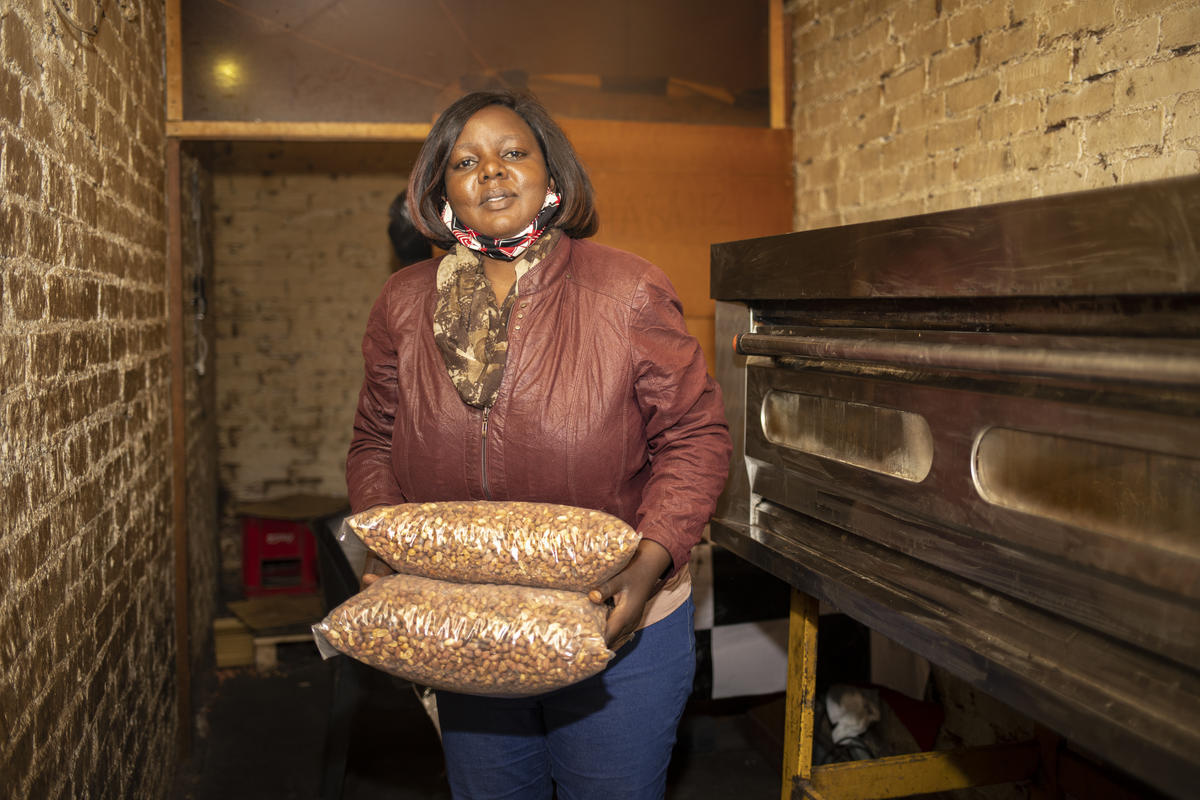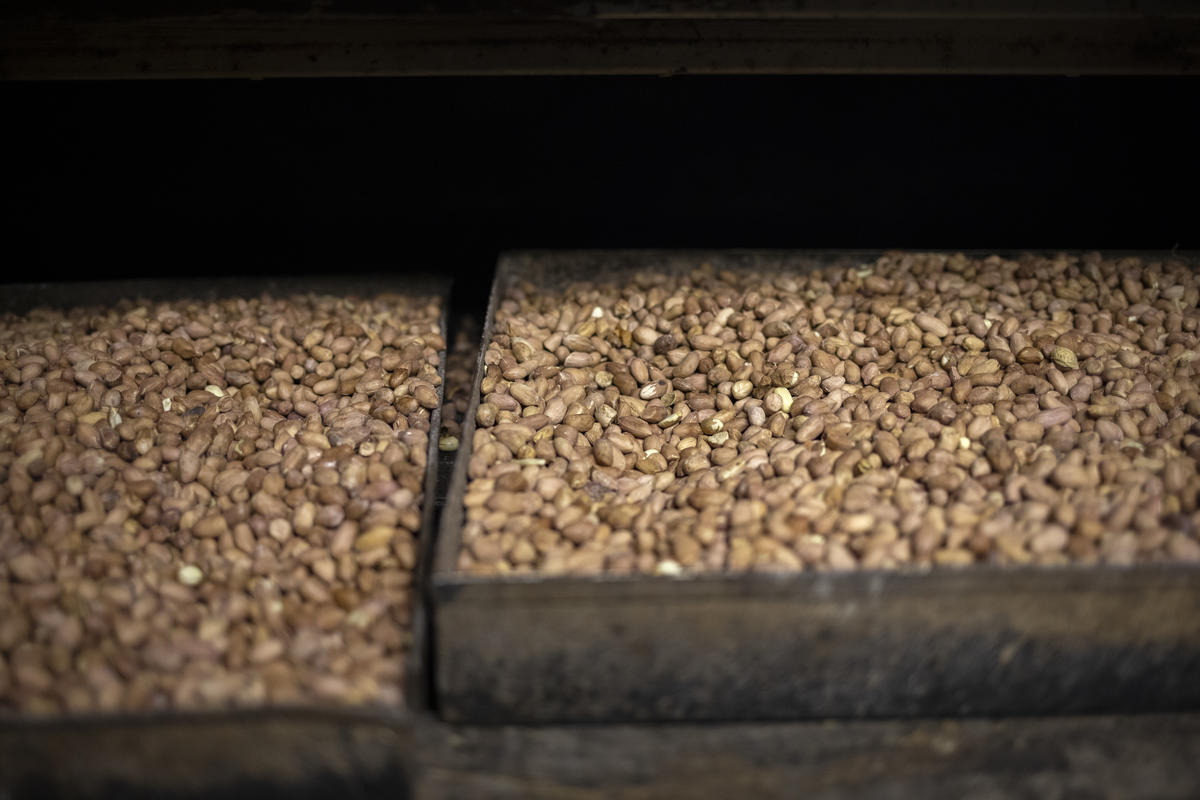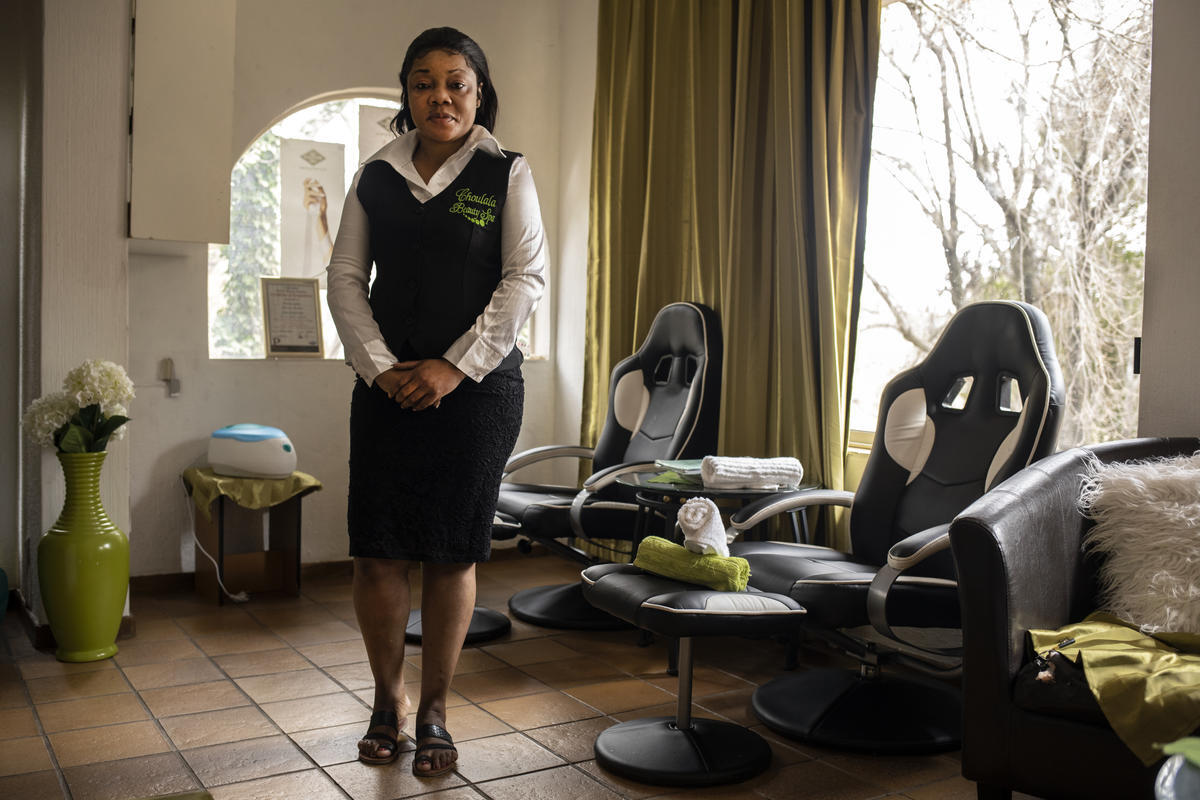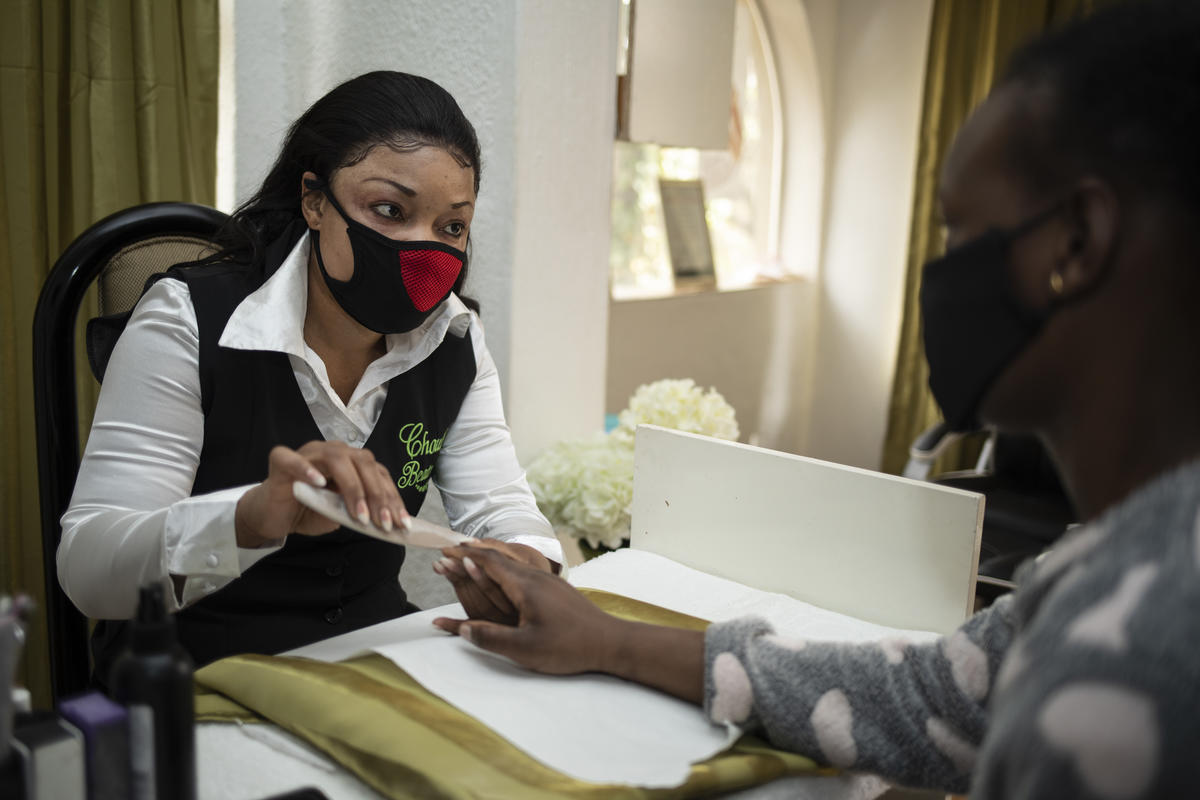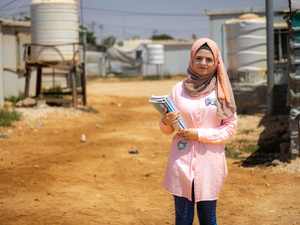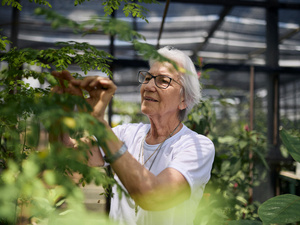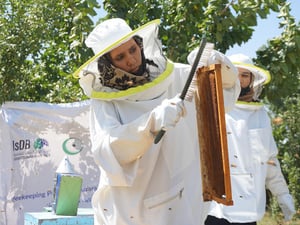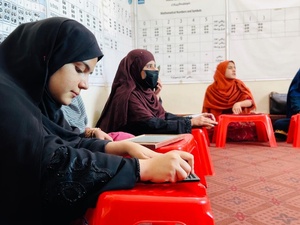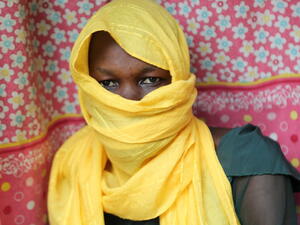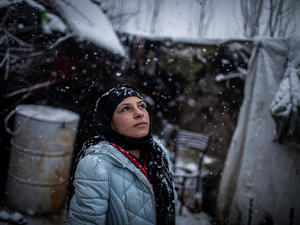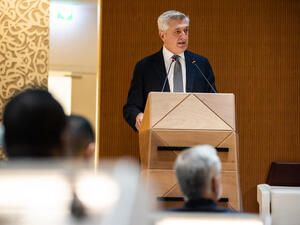In South Africa's COVID-19 lockdown, women refugee entrepreneurs struggle

In South Africa's COVID-19 lockdown, women refugee entrepreneurs struggle
Congolese refugee Michelle, sits in her beauty salon in Pretoria, South Africa.
When South Africa went into a total coronavirus lockdown in March, Grace had no choice but to let four employees of her peanut distribution business go.
“I have managed to retain only one of them,” says the 43-year-old entrepreneur, a refugee from the Democratic Republic of the Congo (DRC). “That’s how badly my business has been affected.”
Like others working in the country’s informal sector, Grace’s vulnerability was laid bare by the COVID-19 pandemic.
Also hit by the slowdown was Michelle, 41, who had thrived as an entrepreneur since fleeing conflict in the DRC in 2009, opening a portfolio of businesses in Pretoria, South Africa.
But after the anti-COVID measures closed schools and required people to stay home, she had to shutter her catering and décor services businesses. She is now struggling to keep her remaining business open.
“I am fighting hard to keep my salon and spa going,” says Michelle, who supports two daughters.
The fallout from the coronavirus response has impacted refugees and their hosts alike in South Africa, where about half of people live in poverty and about a third are unemployed.
“I am fighting hard to keep my salon and spa going.”
Before the pandemic, Michelle had successfully built up her catering and beauty businesses, even moving them to the leafy suburbs of the capital’s east, after honing her entrepreneurial skills through a business programme, funded by the UN Refugee Agency, UNHCR. South Africa hosts 266,700 refugees and asylum-seekers, almost all of whom live and work in towns and cities across the country.
Refugee women who run small enterprises alongside established businesses are just as vulnerable as their camp-based counterparts in the region.
“We have advocated strongly with the government for the inclusion of refugees in the country’s national safety nets,” says Laura Buffoni, a senior protection officer based at UNHCR’s regional office in South Africa.
UNHCR has also provided support to some 36,800 people during lockdown with assistance from food, cash and vouchers to legal advice and counselling since lockdown began.
Buffoni added that some refugees have received the government's COVID-19 'social relief of distress' grant for a period of six months.
The grant is a temporary provision of assistance intended for people who are unable to meet their families’ most basic needs.
Refugees frequently overcome huge obstacles to reach safety and often draw strength from the support of their hosts. That spirit of resilience and unity is helping them now, says Pretty Ncube, the Director of the ACTION Support Centre, a non-profit in Gauteng that invests in conflict resolution.
‘While the pandemic has exposed inequality and extreme poverty, it has also brought out the ubuntu in many women,” she explains, referring to the South African term that encourages everyone to support one other, regardless of nationality or status.
She adds that refugees, like South Africa’s vulnerable, are also in need of the social relief of distress grant. To address the stark reality of a lack of income during the lockdown, she helped to establish the African Solidarity Campaign, a community-based body made up of refugees and South Africans.
“Through the little that the members are able to collect, they try to counter the effects of COVID-19 by providing for the needs of women, children and the elderly,” she says.
“For the first time in a long time, I see light at the end of the tunnel.”
A shift in lockdown policy has also helped, after President Cyril Ramaphosa announced that the country would move to a more socio-economically friendly lockdown level from September 21.
“For the first time in a long time, I see light at the end of the tunnel,” says Grace, adding that more informal traders, school children and pedestrians are slowly returning to buy her peanuts.
Meanwhile, ever the entrepreneur, Michelle is advertising her business online, promoting free manicure and pedicure packages to regain clients and is determined to firm up her business.
She has also seen an opportunity for more business as the long days of winter turn to spring.
“Women will be wearing open-toe sandals now that the weather is warmer,” she says. “This is an opportunity to branch out.”

